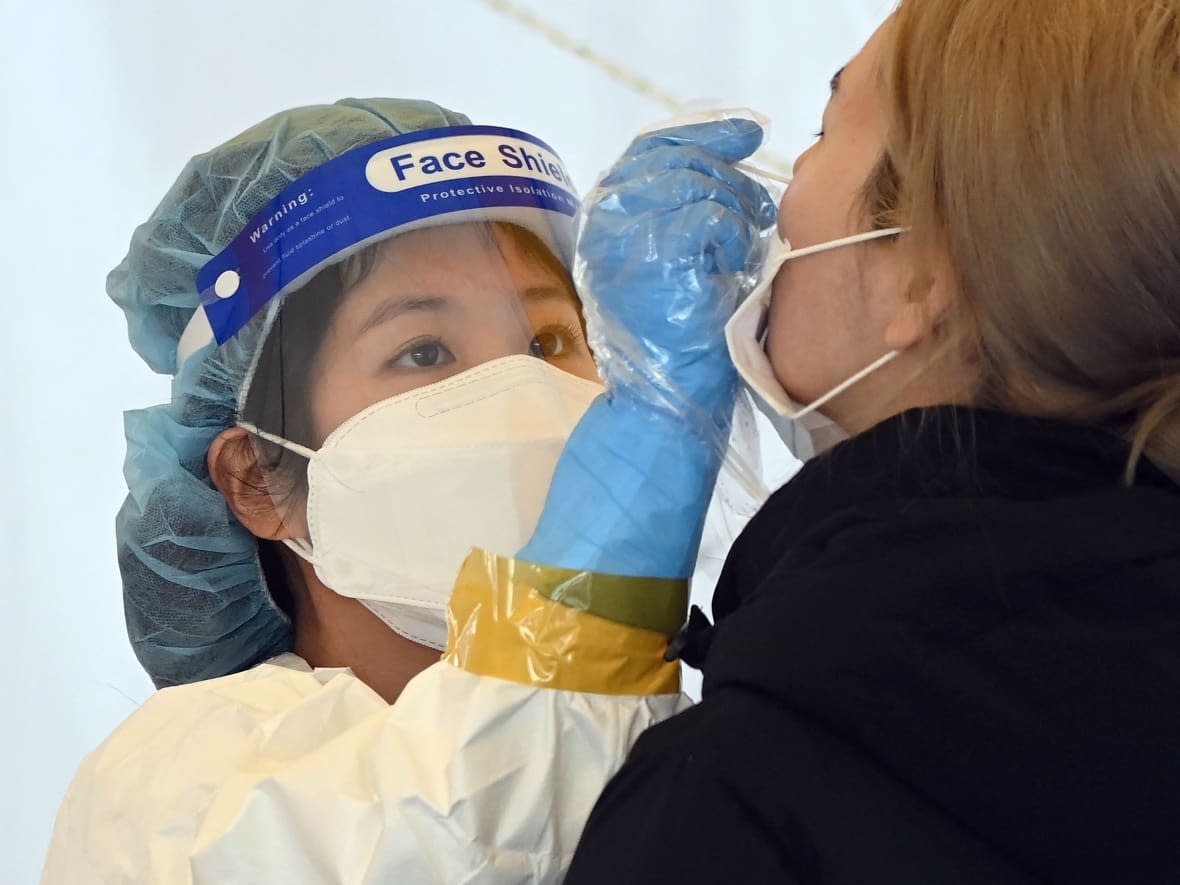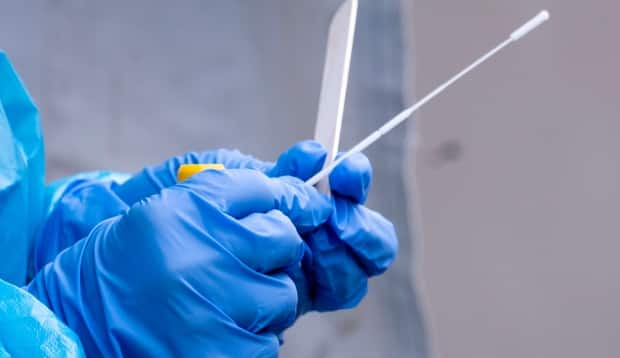Thursday is last day for COVID-19 testing centres, Horizon memo reveals

All Horizon Health Network COVID-19 testing centres will close by the end of day Thursday because of a decrease in demand, an internal memo obtained by CBC News reveals.
PCR testing will now be performed at Horizon hospitals and referrals for appointments must be made through a primary care provider, Danny Jardine, Horizon's interim vice-president community, advises all staff and physicians in the memo, dated May 25.
Horizon did not immediately respond to questions Wednesday about why the change hasn't been publicly announced, or what it will mean for the thousands of New Brunswickers who don't have a family doctor or nurse practitioner.
Vitalité Health Network was "unable" to say what its plans are for COVID assessment centres.
"We will get back to you tomorrow," an unidentified spokesperson said in an email.
Asked whether the Horizon changes were a direction from or recommendation by Public Health, Department of Health spokesperson Sean Hatchard said all questions about the health authorities' COVID assessment centres, should be directed to them, "as these are operational decisions made outside the direction of the Department of Health."
Horizon is taking a "new direction on COVID-19 testing," according to Jardine's memo.
"The demand for PCR [polymerase chain reaction lab] testing for COVID-19 has significantly decreased across the province," he wrote.
As a result, Thursday is the last day the assessment centres will be operational. Testing will now be centralized through Horizon's hospitals.
A primary care provider must submit a request for a PCR test at a hospital, according to the memo.
"Appointments will only be accepted through a primary care provider's office. Patients are not to call to request an appointment."

Horizon currently operates six assessment centres — in Moncton, Saint John, Sussex, Fredericton, the Upper River Valley area and Miramichi — according to its website.
The regional health authority did not respond to questions about how many people work at the centres, but as of April 1, there were 14. Jardine did confirm in an email that the assessment centre employees will be redeployed to "other duties within the health-care system."
"We would like to sincerely thank all employees who have worked at these centres over the last three years and for playing such an integral role in the provincial response to the pandemic," he said in an emailed statement.
Jardine did not say how much money closing the centres will save, or explain how using hospitals for testing and primary care providers to schedule appointments is considered the best use of these already-stretched resources.
The New Brunswick Medical Society did not respond to a request for comment.
Access to tests restricted since April 1
PCR testing has been restricted for the past two months because New Brunswickers with COVID symptoms can no longer self-schedule an appointment. The lab-based tests are only available to those for whom the results "will directly influence treatment or care," and they must have a referral from a health-care provider.
People who don't have a family doctor or nurse practitioner can be referred through an after-hours or walk-in clinic, through a virtual appointment with eVisitNB or by contacting Telecare 811, Dr. Jennifer Russell, chief medical officer of health, has said.
A total of 2,748 PCR tests were conducted across the province between April 30 and May 27, according to Tuesday's first monthly COVIDWatch report instead of weekly.
That's about half the number of tests conducted between March 5 and April 1, before the requirement for referrals was implemented.
Rapid tests still available
Access to COVID-19 rapid antigen tests, also known as point-of-care tests (POCT), will continue to be provided in communities for at-home testing, Jardine said. The Paxlovid antiviral treatment can be obtained with a positive rapid test, he noted.
Although the federal government stopped supplying rapid tests to provinces and territories in January, New Brunswick has millions of rapid tests in stock, according to the Department of Health spokesperson.
"There is enough inventory for anyone who would like to have tests on hand in case they become symptomatic," Hatchard said in an emailed statement.
He didn't say how soon they're scheduled to expire.
"Expiry dates vary by lot. As part of good inventory management process, the first to expire will be the first out," he said.
Rapid test kits are available for pick up by appointment through a variety of community-based sites, including public libraries, municipal buildings and health centres. No symptoms are required to obtain a kit, but rapid tests should only be used by people experiencing symptoms consistent with COVID-19, as that is when they are most effective and useful, the Department of Health has said.
14 more deaths, 50 COVID patients
The province announced 14 more deaths from COVID-19 in Tuesday's COVIDWatch report, raising the pandemic death toll to 897. Two of the people who died were between 50 and 69 years old, and 12 were 70 or older. Their deaths occurred between last November and April.
Thirty-nine people were admitted to the hospital because of the virus during the reporting month, four of whom required intensive care.
The two regional health authorities, meanwhile, said that as of Saturday, they had 50 people hospitalized who were either admitted because of COVID or initially admitted for another reason and later tested positive for the virus. Three of those patients required intensive care, the Horizon and Vitalité COVID dashboards showed.
A total of 294 new cases of COVID were confirmed through PCR tests in the past month, for a positivity rate of 10.7 per cent.
An additional 168 people self-reported testing positive on a rapid test.


